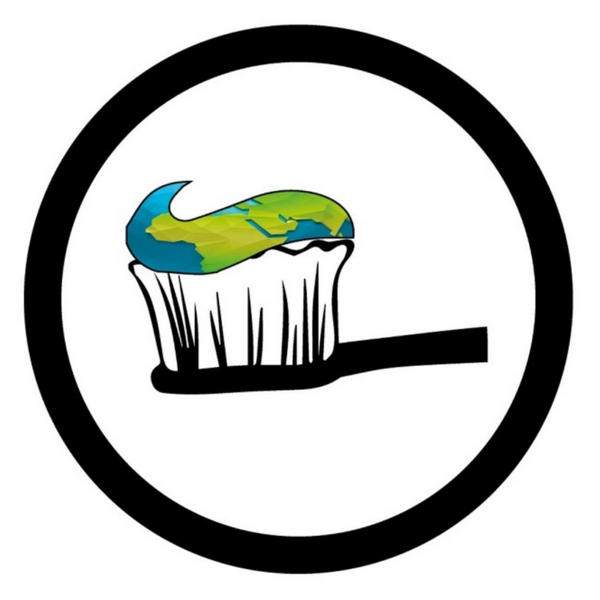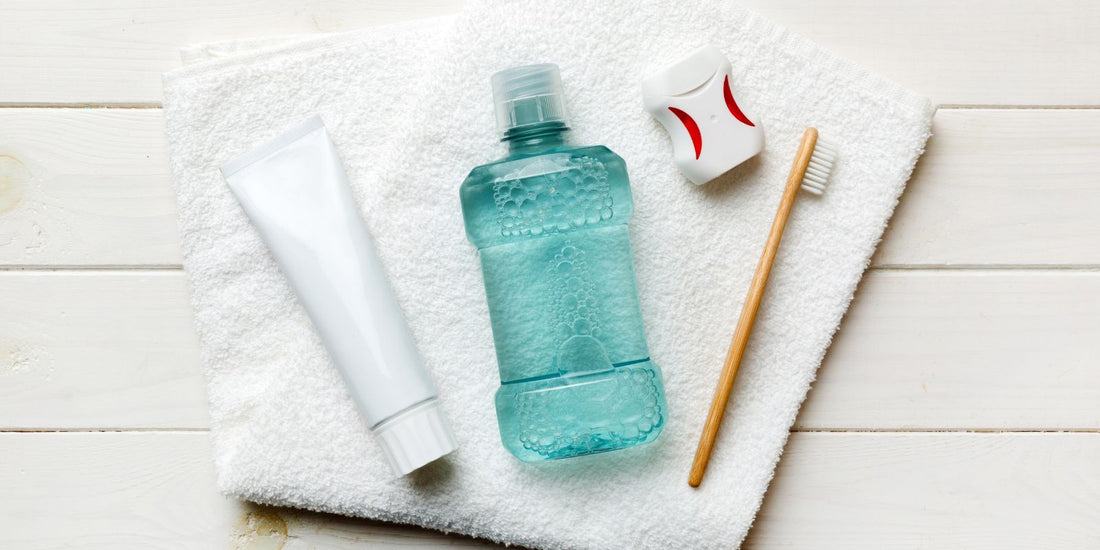In short - using mouthwash everyday is not as necessary as brushing your teeth everyday. That said, whether or not you decide to use mouthwash will depend on a number of factors such as individual oral health needs, expert opinion and ultimately, your personal preference. Generally speaking, while mouthwash is a useful and effective addition to an oral hygiene routine, it should not replace brushing or flossing.
To prevent cavities and oral health issues such as gum disease, you must remove plaque from your teeth. And the only effective way to do this is to brush your teeth twice a day and floss at least once a day.
Both brushing and flossing are the most important things that you can do when it comes to keeping your teeth and gums healthy, therefore using mouthwash every day isn’t necessary for a clean mouth. That said, mouthwash can help with a number of things such as bad breath, gum disease, tooth decay, and other oral health issues.
To maintain optimal oral health, it is therefore recommended to follow a mixture of oral hygiene practices, including daily brushing, flossing, mouthwash as well as regular dental check-ups. Shop environmentally-friendly dental care products here, including vegan toothpaste tablets and bamboo toothbrushes.
Benefits of Using Mouthwash Everyday
While using mouthwash everyday is not absolutely necessary, it is still recommended by dentists to help keep your mouth and teeth health in top condition. Here are just a few reasons why you should be using mouthwash everyday in your oral hygiene routine...
1. It Freshens Breath
Nobody wants bad breath, which is why many people reach for mouthwash. A 30 second swish and gargle and your mouth is left feeling fresh, clean and odour free.
This is because mouthwash often contains both antimicrobial agents that help eliminate bacteria and compounds that neutralise or mask odours, for example, mouthwashes which include ingredients like menthol or peppermint.
Mouthwashes with these antibacterial agents can help control the buildup of plaque and tartar on teeth left over from brushing. And as plaque accumulation can contribute to bad breath, reducing these deposits can have a positive impact on the freshness of breath.
Additionally, saliva plays a key role in maintaining oral health by washing away food particles and bacteria. Some mouthwashes stimulate saliva production, helping to keep the mouth moist and prevent dry mouth, which is a condition that can contribute to bad breath.
 Mouthwash is especially beneficial if you’re heading to a social event and going to be talking to others face to face. A quick swish of mouthwash will do wonders.
Mouthwash is especially beneficial if you’re heading to a social event and going to be talking to others face to face. A quick swish of mouthwash will do wonders.2. It Can Whiten Teeth
While most traditional mouthwashes are not especially designed for teeth whitening, some do contain certain ingredients that contribute to a brighter smile through mild surface stain removal.
For example, some mouthwashes on the market may contain low concentrations of hydrogen peroxide, which is a common ingredient found in teeth whitening products as it can help lighten tooth colour by breaking down and removing surface stains on the enamel.
Some mouthwashes also contain mild abrasives, such as silica, which work by polishing the enamel, making the teeth appear cleaner and brighter. Different types of mouthwash can also include whitening technology that’s non-abrasive so won’t harm the enamel yet forms a protective shield around the teeth, preventing any future stains and maintaining whiteness.
 If you are specifically looking to whiten your teeth, we recommend using mouthwash in conjunction with products that are specifically designed for teeth whitening. For example, whitening toothpastes e.g. charcoal toothpaste, gel whitening or laser whitening.
If you are specifically looking to whiten your teeth, we recommend using mouthwash in conjunction with products that are specifically designed for teeth whitening. For example, whitening toothpastes e.g. charcoal toothpaste, gel whitening or laser whitening.
If you’re on the hunt for an eco-friendly whitening toothpaste, shop our fluoride charcoal toothpaste tablets here, all made from all natural, vegan ingredients.
3. It Can Help To Prevent Gum Disease
Probably the most important benefit of using mouthwash everyday is that it can help to prevent gum disease.
Gum disease (also known as gingivitis) is an infection which causes the gums to bleed or become red, swollen and sore. The main cause of this disease is poor oral hygiene from the build up of plaque on the teeth. If gum disease is left untreated, it will progress into periodontitis, which is a more severe stage of gum disease, so doing everything you can to prevent this is important.
As touched on previously, mouthwashes with antibacterial properties can help reduce the formation of plaque on teeth and along the gumline, lowering the risk of gum disease forming.
Some mouthwashes also have anti-inflammatory properties, which will help to reduce inflammation of the gums. Inflammation is a key component of gum disease, and controlling it can contribute to preventing its progression.
4. It Is a Convenient Way To Maintain Oral Health
Last but not least, using mouthwash is a convenient way to maintain overall oral health.
While not a replacement for regular brushing and flossing, mouthwash can complement these oral care practices as it offers an additional layer of protection by reaching those hard to get areas that may be hard to access with a toothbrush or floss alone.
Mouthwash is also convenient because it’s portable and does not require water or additional tools, meaning it can be used in various settings and on-the-go.
 Whether at home, at work, or while travelling, mouthwash provides a readily available option for maintaining oral hygiene.
Whether at home, at work, or while travelling, mouthwash provides a readily available option for maintaining oral hygiene.Can Too Much Mouthwash Be Bad?
The simple answer is - yes, too much mouthwash can in fact have a negative impact on your oral health, especially if you’re using an alcohol-based mouthwash. This is because alcohol can exasperate the soft tissues of the mouth and could also cause dry mouth.
Also, while mouthwash is designed to kill bacteria, using it excessively may disrupt the balance of the oral microbiome which plays a crucial role in maintaining oral health, and an imbalance can lead to bad breath and an increased risk of cavities.
This leads us to the next question of, how do you use mouthwash effectively?
How to Use Mouthwash Effectively
When it comes to the amount of mouthwash, most bottles have a measuring line on the cap. But for the most effective results, you should only be using about 20ml. The recommended use for mouthwash is twice in a 24-hour period, straight after brushing your teeth.
As mentioned earlier on in the blog, the most effective way to use mouthwash is as a third step in your dental routine, after brushing and flossing. So, after these two steps, measure out 20 ml and swish it around your mouth, between your teeth and gargle with it in the back of your throat.
Spend about 30 seconds doing this, then spit the mouthwash into the sink and wait 30 minutes before eating or drinking anything (even water).
Brush Fresh Co. is founded and run by a group of UK-based dentists, who specialise in environmentally-friendly and sustainable dental products. From biodegradable bamboo toothbrushes to zero waste toothbrush tablets, our product range has been designed to put both your dental health and the environment first.
For more information and dental care advice, head over to our blog page or get in contact with us here.
Written by Kate, on behalf of Brush Fresh Co - the UK's Dental Experts Providing eco-friendly dental care.

